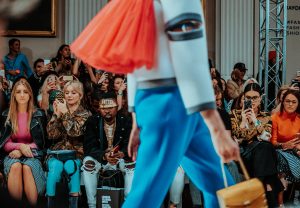Young college students often break into the professional working world by participating in internships with companies that will provide them with enriching experiences. Depending on the industry, a lot of the internships are unpaid, however, the internships typically focus on educational and vocational advancement for the students. The purpose of the internships is to leave the students feeling confident that they have made first steps into the industry or career of their choice.
While many internships are successful in providing applicable experiences, other internships are an excuse to hire free workers. Former Gucci America Inc. intern, Lindsey Huggins, did not agree with this unpaid element for her internship, which resembled a full-time job. The tasks she was given, such as answering phones, assisting customers, and taking down orders, represented those of a minimum wage employee. Huggins argued that, if not for the unpaid interns, the company would have had to hire and pay employees to fulfill those job duties.
The initial lawsuit, filed by Huggins on November 8, 2014, accused Gucci of committing wage theft and violating New York minimum wage labor laws. The lawsuit reached class action status and eventually led to mediation stages on May 27, 2015. While Gucci refrained from taking responsibility for the claims presented in the lawsuit, the opposing parties agreed to a settlement. A final hearing is set for August 15, 2017, where a judge will determine if the terms of the settlement are fair.
In addition to Gucci interns, interns from other companies, such as Yves Saint Laurent, Stella McCartney or Bottega Veneta may also benefit from this class action settlement. To be considered a class action member, Gucci interns must have interned any time during the period of November 18, 2008 and May 17, 2016. Those who interned at Yves Saint Laurent, Stella McCartney, or Bottega Veneta during the period of May 17, 2010 and May 17, 2016 may benefit as a class action member. The potential maximum payout is $900 for each member.
